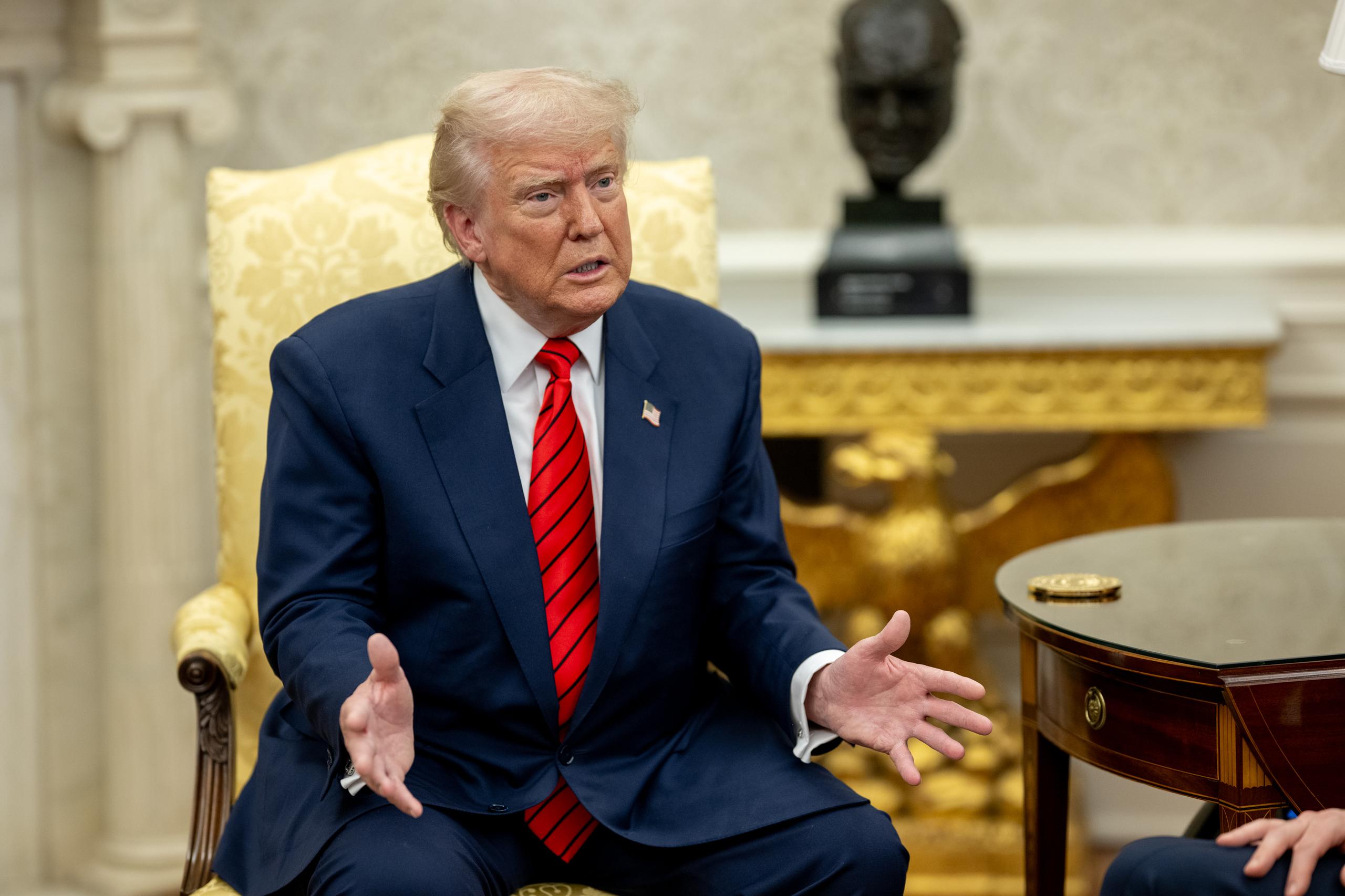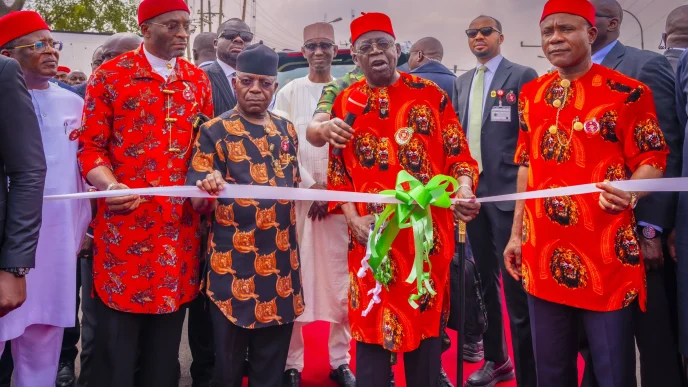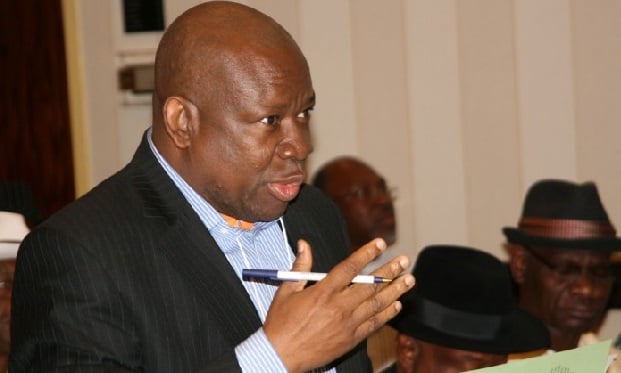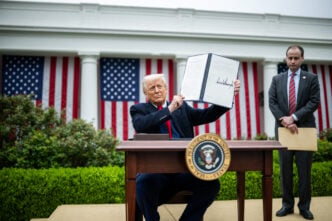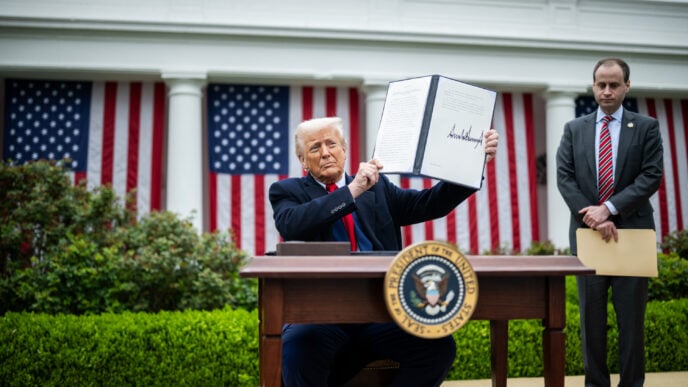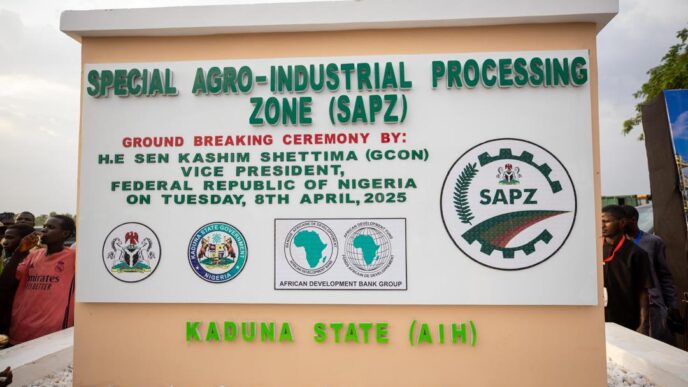Donald Trump’s return to aggressive tariff policies, under his “MAGA Master Plan,” has cast a long shadow over global trade, creating a complex landscape of risks and potential opportunities for African economies, particularly Nigeria. Some people called yesterday Black Monday as stock markets everywhere, including Nigeria’s NGX, bled red.
While critics denounce these measures as disruptive and chaotic, Trump’s administration presents them as a necessary realignment of US economic dominance. For Africa, the implications are multifaceted: the initial turbulence could pave the way for strategic, long-term gains, provided the continent seizes this moment to diversify its trade relationships, bolster domestic production, and diminish its reliance on volatile global markets.
The tariffs, including a blanket 10% levy on imports and a 54% surcharge on Chinese goods, threaten to destabilise Africa’s established export routes. Nigeria, a key US trading partner in sectors like crude oil and cocoa, faces the risk of collateral damage. In 2023, the US imported $3.8 billion worth of Nigerian crude; however, tariffs could incentivise American buyers to seek alternative sources, thereby squeezing Nigeria’s crucial dollar earnings. Similarly, African manufacturers dependent on Chinese intermediate goods—such as textiles, electronics, and machinery—face the prospect of increased input costs, potentially hindering industrial growth.
Furthermore, these tariffs risk exacerbating existing currency pressures. African nations burdened with dollar-denominated debt, such as Nigeria with its substantial $40 billion liability, may see repayment costs escalate if the dollar strengthens under Trump’s policies. Concurrently, diminished export revenues could deplete foreign reserves, further destabilising currencies like the naira.
Advertisement
However, within these challenges lie strategic opportunities for Africa to reshape its economic trajectory.
Firstly, Trump’s tariffs underscore the inherent vulnerability of over-reliance on US and Chinese markets. Africa can mitigate this risk by accelerating the implementation of the African Continental Free Trade Area (AfCFTA), which aims to increase intra-African trade from 18% to 50% by 2035. Nigeria, with its substantial consumer base, could position itself as a regional hub for processed goods, such as value-added cocoa products, thereby circumventing tariff barriers.
Secondly, tariffs on Chinese imports could stimulate African industrialisation. Nigeria’s pharmaceutical sector, which currently imports 70% of its medicines, has the opportunity to expand local drug manufacturing. By fostering partnerships with Indian and European generic producers, and leveraging the AfCFTA’s scale, Nigeria can reduce its dependence on US-linked supply chains.
Advertisement
Thirdly, African countries can diversify their exports towards non-traditional sectors less susceptible to US tariffs. Morocco’s successful automotive export sector serves as a model. Nigeria’s burgeoning tech sector, with its software service exports, could also thrive, as digital trade is less affected by tariffs.
Fourthly, Trump’s “green bucket” strategy, which offers preferential treatment to allies, may compel Africa to forge closer ties with alternative partners. The BRICS bloc, now including Egypt and Ethiopia, offers a platform to negotiate favourable terms for commodity exports and secure infrastructure investment.
If African countries, particularly Nigeria, wish to truly benefit from the shifting global trade landscape, they must act with purpose and determination. Specifically, Nigeria needs to reassess its export strategy, focusing on promoting goods with added value and enhancing trade within the region. Additionally, a significant investment in the country’s logistics infrastructure is crucial. The current inefficiencies at Lagos ports, leading to daily losses of $55 million due to delays, pose a serious barrier to trade. Lastly, Nigeria should actively engage its diaspora, encouraging them to invest their remittances, which total $20 billion annually, into promising, export-oriented start-up businesses.
Trump’s tariffs are a stark reminder for Africa to reassess its position within the global economy. While short-term disruptions are inevitable, the continent can turn this moment into a catalyst for self-reliance. By deepening regional integration, fostering local industries, and diversifying trade alliances, Nigeria and its peers can emerge stronger, transforming from victims of global chaos into architects of their own economic destiny.
Advertisement
Nwanze is a partner at SBM Intelligence
Views expressed by contributors are strictly personal and not of TheCable.

